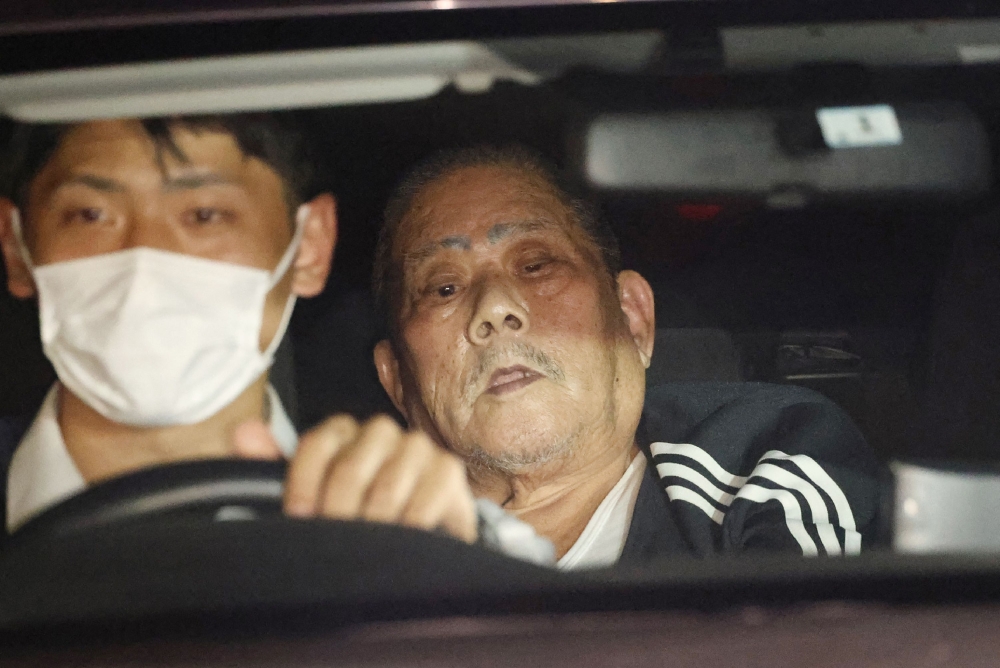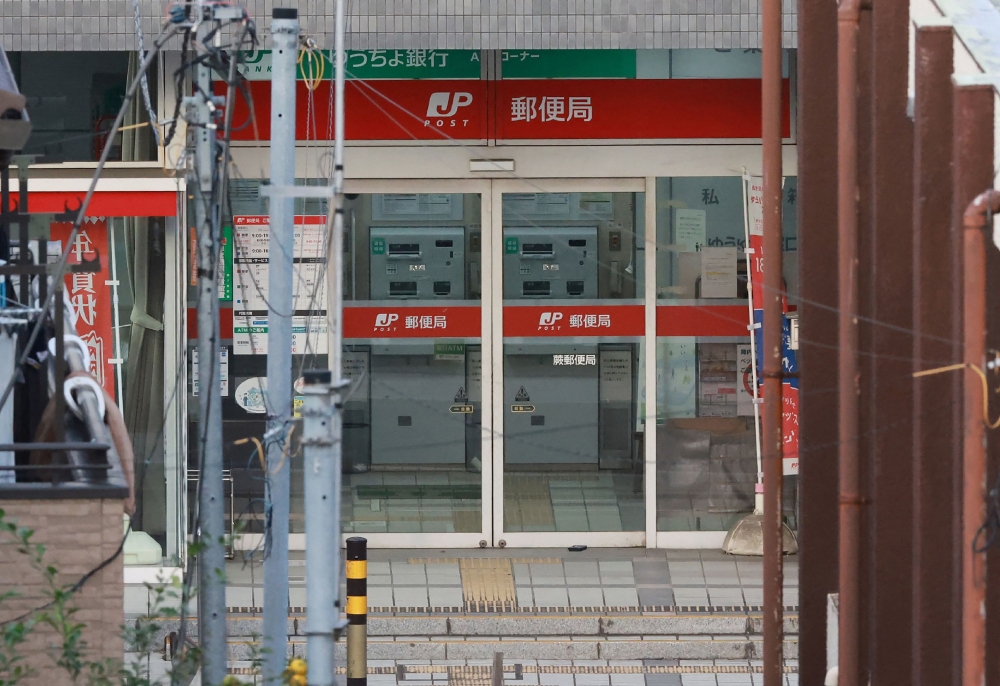TOKYO, Nov 2 — Japanese police on Wednesday were probing the motives of an 86-year-old who took two women hostage in a post office after reportedly first setting his home on fire and shooting into a hospital.
Two people were wounded at the hospital in Saitama, outside Tokyo, while the two hostages were unharmed after an eight-hour ordeal at the hands of the irate and armed pensioner on Tuesday.
Media reports said Tsuneo Suzuki had a grudge against the postal service and was angry with a doctor at the hospital.

“He demanded to police officers at the scene that he wanted to see a specific someone,” a Saitama police spokesman told AFP, adding only that an investigation was ongoing.
In addition to a handgun attached to a cord around his neck, Suzuki reportedly had with him two knives as well as an 18-litre (4.75-gallon) container and two bottles containing an unspecified liquid, according to major media including TV Asahi network.
He also confirmed to police that he was behind the hospital shooting, which resulted in two injuries, and the fire at an apartment where he lived, local media said.
Broadcaster NTV said Suzuki told police he had “shot” a gun at the hospital and “burned my house”.
He told police he “was frustrated” by a meeting with a doctor at the hospital, the Asahi Shimbun said, and had a grudge against the post office over a traffic accident.

The eight-hour post office showdown lasted until after 10pm, with live television pictures showing the building surrounded by police cars with flashing lights.
Crime rates are exceedingly low and gun violence nearly non-existent in Japan, which has some of the toughest firearms laws in the world.
Police finally arrested Suzuki after one of the hostages was released and the other managed to leave the building on her own.
Earlier in the day, a man had been seen firing a gun at Todachuo General Hospital, injuring two people, reportedly a doctor and a patient, before leaving on a motorbike.
Before that, a fire started at Suzuki’s apartment in the city of Toda, near the post office.
Neighbours described Suzuki as a friendly man who lived alone.
“I have never seen a gun or anything dangerous inside his room,” the Asahi Shimbun quoted one unnamed friend as saying.
More than one in 10 people in Japan is 80 years or older, and an increasing number of them live alone and lose contact with relatives.
Japan has experienced sweeping cultural and economic changes in recent decades but the social safety net has failed to keep pace — with the burden still on the family to look after the elderly. — AFP






















